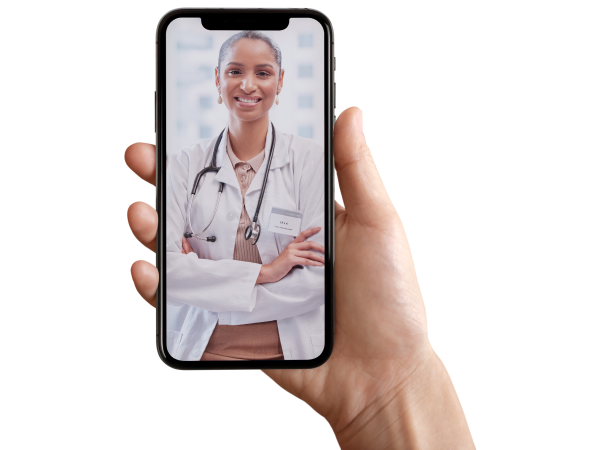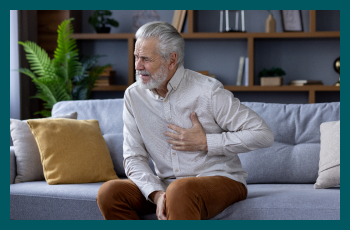What are the symptoms of heart palpitations?
When you have heart palpitations you may have the following symptoms:- Feeling like your heart is beating extremely fast
- Heart fluttering rapidly or sensations of butterflies in your chest
- Having difficulty recovering your breath during or after palpitations
- Feeling like your heart is pounding or thumping strongly
- Sensations of missed or irregular heartbeats
- Feeling dizzy or lightheaded
- Mild discomfort in your chest area
What are the causes of heart palpitations?
Heart palpitations can be caused by various factors, including:- Emotions such as anxiety, stress, fear, or panic attack
- Intense physical activity
- Caffeine and stimulants
- Hormonal changes during pregnancy, menopause, or menstruation
- Medical conditions like thyroid disorders, anaemia, or electrolyte imbalances
- Use of illicit drugs or excessive alcohol
- Heart conditions such as arrhythmias (irregular heartbeats), or heart muscle disorders
- Use of certain medications that affect heart rate or rhythm
Try some home remedies
Heart palpitations might be alarming, but they are usually not dangerous. Here are some home treatments that might help relieve or control heart palpitations:- Deep breathing: Use deep breathing techniques to relax your nervous system and control your heart rate.
- Stay hydrated: Dehydration can occasionally cause palpitations, so be sure to consume plenty of water throughout the day.
- Avoid triggers: Identify and avoid coffee, nicotine, alcohol, and some drugs that may cause palpitations.
- Manage stress: Stress and worry can exacerbate palpitations. Reduce stress by practising relaxation techniques such as yoga, meditation, or mindfulness activities.
- Get enough sleep: Inadequate or interrupted sleep habits might impact your heart rhythm. Aim for 7-9 hours of decent sleep per night.
- Maintain electrolyte balance: Low amounts of potassium, magnesium, or calcium can cause palpitations. Consume potassium-rich foods such as bananas and oranges, and consult your doctor before taking a magnesium supplement.
- Regular exercise: Regular exercise can enhance heart health and minimise palpitations. Begin with moderate exercises such as walking or swimming, and avoid abrupt, intensive workouts if you're not used to them.
- Avoid big meals: Eating large meals, particularly before bedtime, might cause palpitations. Eat smaller, more frequent meals throughout the day.
- Herbal remedies: Valerian root, passionflower, and lemon balm may aid with palpitations. However, before using herbal supplements, discuss with a healthcare practitioner, especially if you have other health issues or are taking medications.
- Cold water: Splashing cold water on your face or taking a cold shower might activate the vagus nerve, which may help control your heart rate.
- Acupuncture: Some patients find that acupuncture sessions assist in controlling heart palpitations by harmonising the body's energy flow. Consider seeing a licenced acupuncturist for treatment.
- Aromatherapy: Essential oils like lavender and chamomile may have relaxing properties that help reduce palpitations. Use them in a diffuser or diluted in a carrier oil for massage.
When should I worry about heart palpitations?
If you have heart palpitations that occur frequently, last for a lengthy time, and are accompanied by severe dizziness, shortness of breath or fainting, you should visit a doctor. Furthermore, if palpitations arise unexpectedly and are accompanied by fast or irregular heartbeats, you should consider seeking medical attention. Other troubling indicators include palpitations that interfere with your everyday activities or sleep, as well as risk factors including a family history of heart disease, high blood pressure, or diabetes. If you're unclear about the reason or severity of your palpitations, get medical help right away to rule out any significant underlying issue.Where to get help?
In cases of emergency, it is important to seek immediate help. If you are experiencing severe symptoms such as acute chest pain, difficulty in breathing, or sudden numbness, you should call triple zero (000) without delay. On the other hand, telehealth with a general practitioner (GP) is ideal for non-critical medical concerns such as minor illnesses, general medical queries, routine check-ups, or mental health support. It provides easy access to healthcare advice and prescriptions via video or phone call, particularly beneficial for describing symptoms that are not fatal but still require medical attention. Choosing telehealth for such problems is time-saving and comforting and ensures complete care without the need for a physical visit to a doctor’s chamber.Heart palpitations can be disturbing, but they are often regulated with proper medical care. Understanding the possible triggers and preventive healthcare can help individuals mitigate the frequency and intensity of heart palpitations, encouraging overall heart health and wellness.

Consult an Online Doctor in 15 mins










 Facebook
Facebook Instagram
Instagram LinkedIn
LinkedIn



